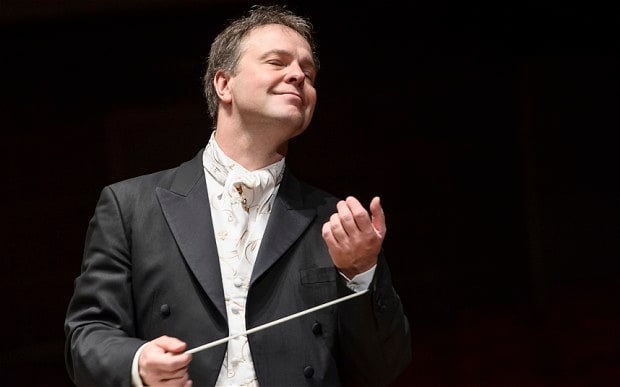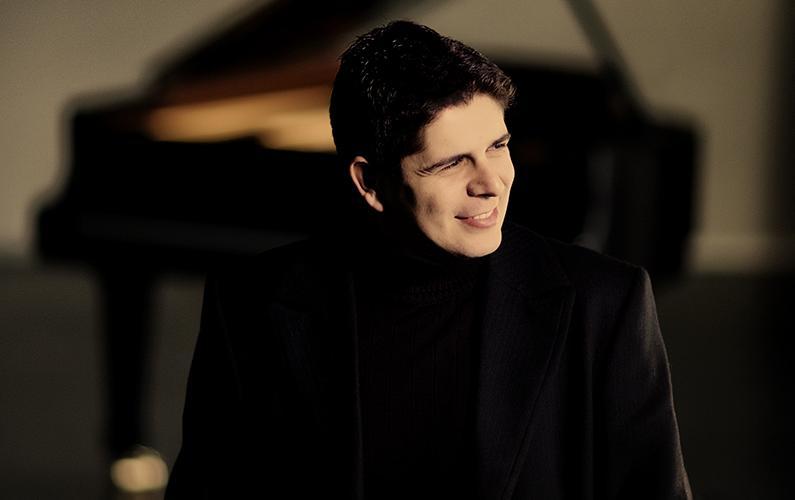Six weeks in and we’ve got to that sweet spot in the Proms season where thematic threads start to knit together, sequences begin to fill out, cycles to finish – when you hear not just the concert in front of you but the echoes of those already past. It’s this cumulative impact, this sense of narrative that gives the festival its particular character, lending weight to even the most workaday midweek concerts.
“Cycle” may be too grand a term for Elgar’s two-and-a-bit completed symphonies, but the triptych is still an interesting one, especially when crowned with Anthony Payne’s thoughtful completion of the unfinished Third. While you have to cast your mind right back to the opening week to recall Barenboim and the Staatskapelle Berlin’s Elgar 1 and 2, the idea of unfinished works has run right through the season – in Schubert’s 8th Symphony, Mahler’s 10th, with Bruckner’s Ninth still to come.
The pacing of the Elgar felt carefully calibrated – stately without being staid
The performing solutions to these incomplete works are varied, but nearly 20 years since its premiere, Anthony Payne’s elaboration of Elgar’s sketches for the Third Symphony remains musically and emotionally satisfying – a fusion of scholarship and imagination that allows the composer’s draft ideas to leave the page and enter the repertoire as much more than just an “I Can’t Believe It’s Not Elgar” curiosity.
Performed here by Sakari Oramo (pictured below), who has long championed Elgar as much more than just a national treasure, and the BBC Symphony Orchestra, the pacing of this hour-long work felt carefully calibrated – stately without being staid – the nervy sense of possibility and the delicate energy of the Scherzo (heralded by that trembling tambourine at the start) leavening the monumentality of both the Adagio and the martially-inclined Allegro, and the combative opening given plenty of bite in Oramo’s grungy strings and brass. The conductor has already recorded the first two symphonies with the Royal Stockholm Philharmonic; this performance gives a tantalising hint as to what the final panel might add to the set.
 Oramo may have ended with music from his adopted country, but he began with a work from home – the first suite of Sibelius's Scènes historiques (the one without Finlandia) in all its colourful variety. These three contrasting miniatures pack plenty of character into their small frames, warming up a fidgety crowd with the folksy strum and dash of “All’Overtura” and the evocative Thirty Years War-inspired “Scena”, whose melody tries so hard to dance but can never quite shake off its leaden-footed melancholy. Most interesting here however was the closing “Festivo”, whose bombastic military march suggested not untroubled victory, but something more ambivalent, more complicated.
Oramo may have ended with music from his adopted country, but he began with a work from home – the first suite of Sibelius's Scènes historiques (the one without Finlandia) in all its colourful variety. These three contrasting miniatures pack plenty of character into their small frames, warming up a fidgety crowd with the folksy strum and dash of “All’Overtura” and the evocative Thirty Years War-inspired “Scena”, whose melody tries so hard to dance but can never quite shake off its leaden-footed melancholy. Most interesting here however was the closing “Festivo”, whose bombastic military march suggested not untroubled victory, but something more ambivalent, more complicated.
Any such troubled thoughts were banished by the evening’s highlight – a light-hearted and light-fingered account of Saint-Saëns’ skin-deep Second Piano Concerto by Spanish soloist Javier Perianes. There’s passion and Romantic angst here, certainly, but in Perianes’s suave performance they were kept at arm’s length – a gorgeous display of emotion, without anything so vulgar as actual feelings. The effect was deliciously French, heightened by the liquid passagework that trickled from fingers still fresh enough after the tireless final Presto to invite his audience to join in the thrusting gyrations of de Falla’s “Ritual Fire Dance” from El amor brujo. In a concert of brightly coloured musical postcards from home, it seemed only right and (im)proper.














Comments
Add comment